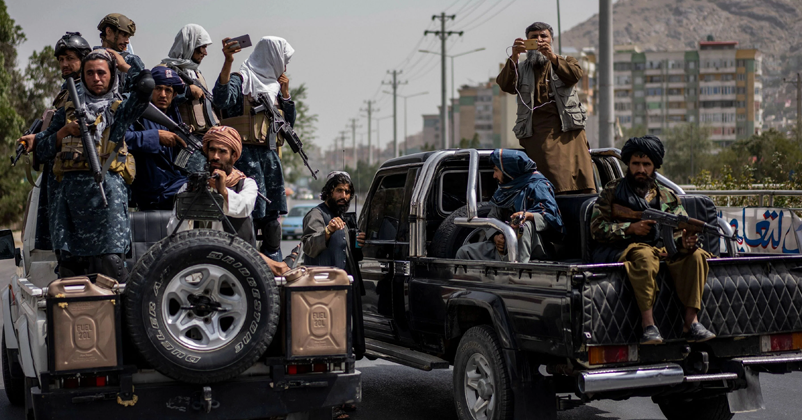Recognition a long march for Taliban
| 12-Nov-2021 |

By Sant Kumar Sharma
Jammu, November 12:
“Called on the Taliban to work with fellow Afghans to take steps to form an inclusive and representative government that respects the rights of all Afghans and provides for the equal rights of women and girls to participate in all aspects of Afghan society,” read a communiqué issued in Islamabad a couple of days ago. The joint statement was issued after some top leaders of Pakistan, China, Russia and the US had a meeting with Taliban’s interim Foreign Minister Amir Khan Muttaqi.
Around the same time, National Security Advisor Ajit Doval hosted NSAs of eight countries in New Delhi to discuss the future of Afghanistan. NSAs of Russia, Iran, Tajikistan, Uzbekistan, Turkmenistan, Kazakhistan and Kyrgyzistan participated in this meeting. Together, they emphasised that Afghanistan’s territory should not be used for terrorist acts. In New Delhi too, the participants laid stress on the formation of an inclusive government in Kabul as a key to any substantial engagement with the Taliba.
Incidentally, Russia was the only nation which had representatives participating in both Islamabad and New Delhi meetings. Its presence in Islamabad seemed aimed to spite the US, but it did not want to annoy India by remaining absent from the New Delhi meeting. Taliban spokesman Sohail Shaheen had earlier welcomed the New Delhi meeting, something that may not have gone down well with Pakistan.
As in other arenas, Pakistan is implacably opposed to India’s participation in anything pertaining to Afghanistan. However, it is emerging now that India is slowly finding space for its continued involvement in Kabul’s affairs. Pakistan’s NSA Moeed Yusuf had earlier called India ``spoiler’’ in Afghanistan while deciding to not attend the New Delhi meeting to which he had been called. In sympathy with Pakistan, China had also decided not to attend the Delhi meeting citing ``scheduling reasons’’.
All this essentially means that despite desperation on the part of the Taliban to get recognition from global community, not even their most ardent friends are in any hurry to do so. China and Russia may be very happy at the US ouster from Kabul, but they are not willing to go the whole hog and recognise the Taliban ``interim government’’. This is becoming a virtually impossible problem for the Taliban to overcome and with every passing day, their anxieties are rising. The possibility of large scale hunger and destitution of common Afghans is already happening, with poor selling their children to ward off hunger.
The formation of an inclusive government by the Taliban is one of the three main conditions the international community, particularly the West. The present interim Taliban government is not considered ``inclusive’’ by most countries, and that is a big hindrance in the grant of recognition to the present de facto rules of poverty stricken Afghanistan. Pakistan has failed to muster courage to become the first nation to grant recognition to the Taliban government even though it has been Taliban’s most ardent defender internationally.
A Pakistani official said the Taliban agreed to the need for the ``inclusive government’’ but their definition of ``inclusivity’’ was at variance from the outside world. Interestingly, the ``outside world’’ referred here is that has its own interpretation regarding ``inclusivity’’. Inclusion of members of different ethnic communities like Tajiks, Uzbeks and Hazaras, along with majority Pushtoons, is what others consider as inclusivity. Of course, participation of women at all levels in the government is also something that the West encourages worldwide and Afghanistan is no exception.
The West is using ``inclusivity’’ as a carrot in the hope that it will soften the Taliban, particularly their hardline interpretation of sharia, which virtually pushes, rather banishes women from public spaces. So far, a game of one-upmanship is on between Taliban and the West, with neither side ready to yield but it is taking a heavy toll on the ordinary Afghans. Some reports have said that as many as 97 per cent of Afghan population may face poverty and hunger in the near future.